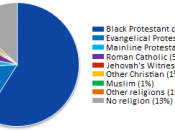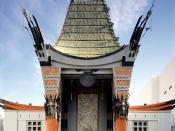When humans interact through the crossing borders and migration into new regions, the residents and immigrants are faced with the problems of racism, segregation, misinterpretation, and even exploitation of others. The Spaniards explored the New World in the 15th and 16th centuries and they saw a land full of economic opportunities. The native residents had no idea of what the European's intentions were with their exploration efforts. Central American war refuges from countries such as Guadalajara, Chile, and Brazil were forced to leave their war-ridden neighborhoods and desired to seek passage into Mexico or the United States for work and labor at reasonable wages. But upon arriving in California; they soon realize that they were doomed to be treated as second class citizens. In California again, Korean Immigrants were the victims of the violent Los Angeles Riots. They were the innocent bystanders to a problem that stemmed from the government's institutionalized racism towards the African American population.
One can easily see that many obstacles exist with the integration and association of immigrants into established societies.
Christopher Columbus was the first to initiate contact with the New World. His finalist interpretation of these new lands paved the way for the Spanish discovery of the Americas. Following closely was the pragmatic conquistador Fernando Cortés's invasion in 1521. Both of these explorers wanted to reap the economic benefits that awaited them in the New World. "We may be scandalized to learn that the Spaniards seek only gold, slaves, and women (Todorov 1984: 58)." The New World was seen as a haven of natural resources and man power to be sent back to the mother country to further fuel Mercantilism. Additionally, it was seen as a chance to spread the Christian faith. "In practice, too, the conquest will have these two essential...


